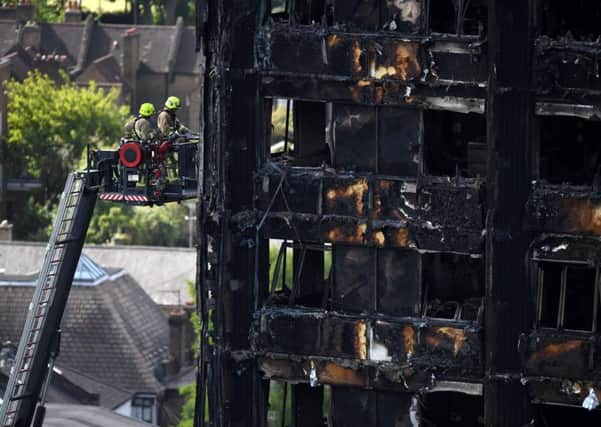Kirsty Gunn: '˜The tower is burning for all of us who care about the future of Britain'


The media may not have reported the death toll as a set figure as the week went on, but on Friday I spoke to a friend whose friend knew an old woman who lived on the 24th floor with her daughter and received a text from her at two o’clock in the morning “asking her to pray for them” my friend Amy said. “‘Because I think we will die’ she wrote.” Amy also has a friend whose son works in the Fire Department and who told his mother that he saw “at least 60” dead in the hallway on one floor as he was trying to make his way through the building. There’s a terrible feeling of grief in all this. Not only the grief that comes from the shock of death and from terrible disaster and damage but the grief, somehow, of uncharted death. For it makes of the first a double death, all these lost and uncounted deaths gone into the gaping cavity that is the bunt-out interior of the building. It makes the whole tragedy even darker, as though a result of carelessness, a sort of capitalist negligence: We can do the numbers later . . .
I say “capitalist negligence” because we used to live near that tower building and left because the community we were part of – mixed, racially, and in terms of people’s social backgrounds and class – was razed to the ground by capitalist interests, and “doing the numbers later” was a phrase that was bandied around at the time by the developers when the community had questions about infrastructure and planning and building quality. Still, our protests against the development were ignored, and a massive concrete “designer” block of flats was put up on the little park where we all used to gather and chat. Sally, our good friend and fellow dog lover, was turned out of her home and “rehoused” for the duration of the new build. Yes, she is one of the “lucky” ones, because her council flat was replaced by another in the fancy new block (there was an extent to which the developers needed to say they were doing this, re-homing a portion of those who had lived their whole lifetime on the estate, for their PR) but most of the residents from the estate have been dispersed, “got rid of” is the phrase being put around North Kensington now, now that a building that many regarded as an “eyesore” in a posh neighbourhood is gone. These are terrible, terrible expressions to use, “eyesore” and “got rid of”, and don’t describe events and attitudes properly, of course they don’t. But they show how people are feeling. They show how society, with its constant foregrounding of luxury and consumer goods and ideals of wealth and privilege as being the only values worth aspiring to, is making them feel.
Advertisement
Hide AdAdvertisement
Hide AdSally is from near Glasgow and came to London as a young woman after a childhood spent in care. Even though we’ve long left the neighbourhood, she and I still get together for a coffee, and she likes to see the girls who were little when she first got to know them and seem so grown up now. We talk about Scotland and the neighbourhood and what she’s been up to. I’m often going on at her about her reading because she took an evening class to develop literacy skills and loved it and did well and as a result I am always encouraging her to apply to my course at Dundee some time because altogether she’s very clever. Just because she had to leave school at 12 doesn’t change that. And she suffers a little from agoraphobia, too, so her trips back home to Scotland when she can manage them are an event. I called her just now to talk about the fire and , yes, she knows someone who was trapped in his bathroom and died. “I don’t know why the newspapers aren’t talking about all the people who were trapped” she said.
Those who are lucky enough to be out on the hills at this time of year, watching the summer solstice light lengthen into an evening that seems like it will never come, might not know anything of this anxious feeling I’ve been writing about, of being caught up, held back, in the month of June. Even those who aren’t on holiday, who are working non-stop in our towns and cities across austerity Britain or who live scattered across Scotland’s great expanses of rural and open land in numbers so tiny on the national scale of things that they don’t “count” either, that much, when politicians and big business are doing their sums, might not think this past week has been so different from the rest either. London, after all, for many, in Scotland especially, is a long long way away.
But the tower burning is burning for all of us who care about the future of Britain and everyone who lives here. For whatever it is they’re doing, those powerful decision-makers have the money and the political systems in train to get their way, and no matter where they’re doing it, whether in Rogart where our house is now, or back near Sally and the burning tower where we used to live. Whether, as I’ve written about before in these pages, it arrives in the poisoning of the waters of the west coast with fish farms or the defacement of the Highland hills by the wind turbine industry. . . the toxic effect of the collusion between big business and government touches us all.
Now, in the conflagration of a council block in the capital, the terrible relationship between politics and business has assumed full physical expression. Taking away, in one summer’s night, not only quality of life, but life itself.